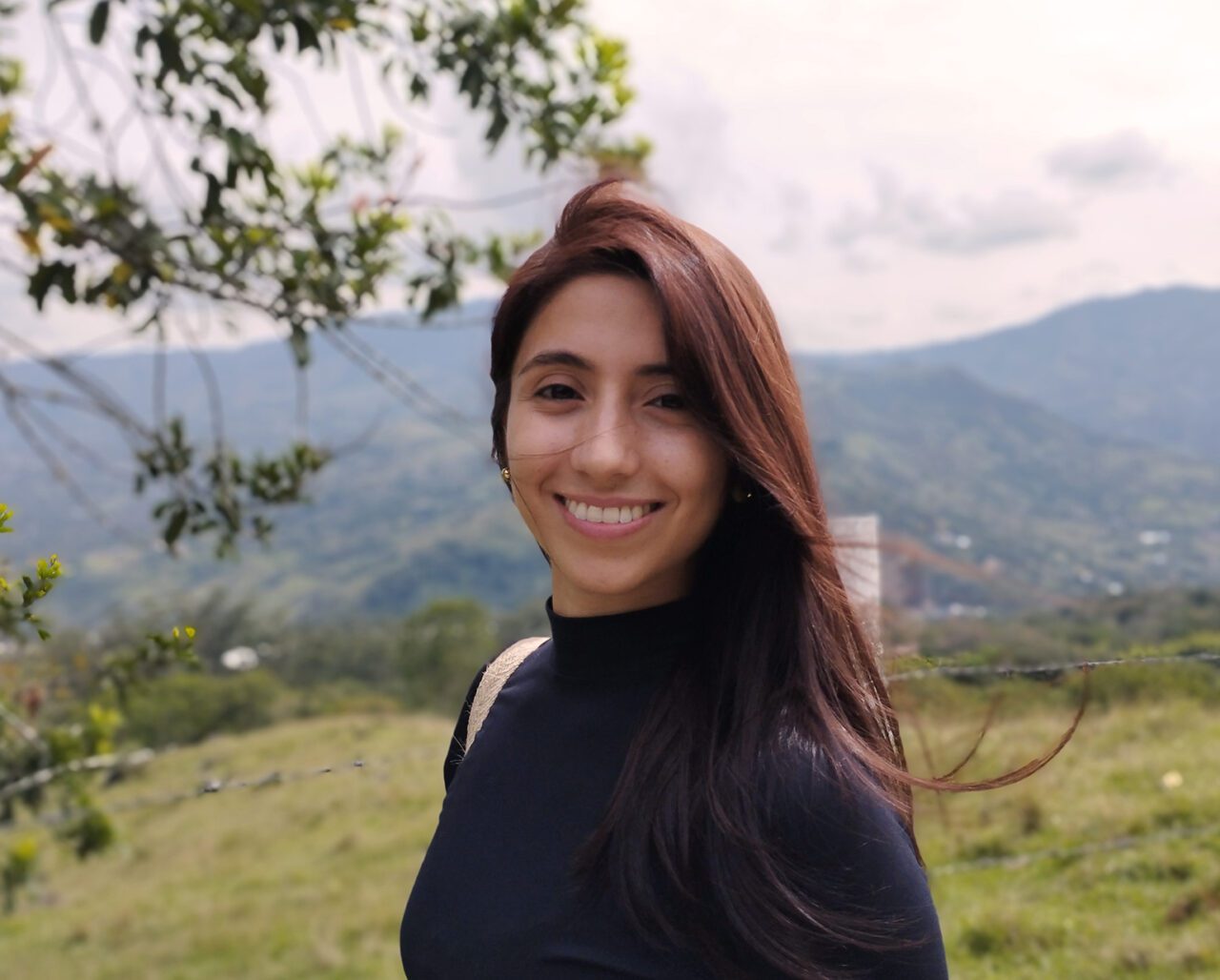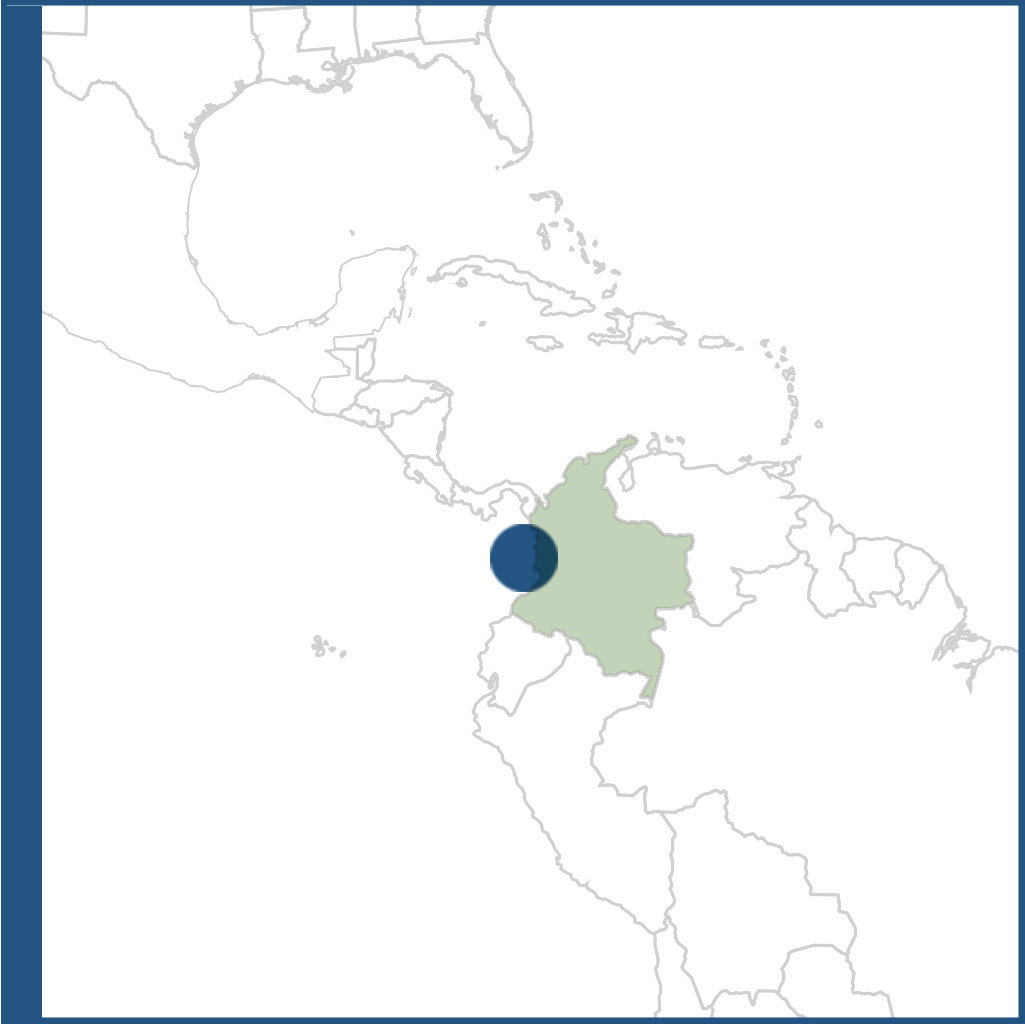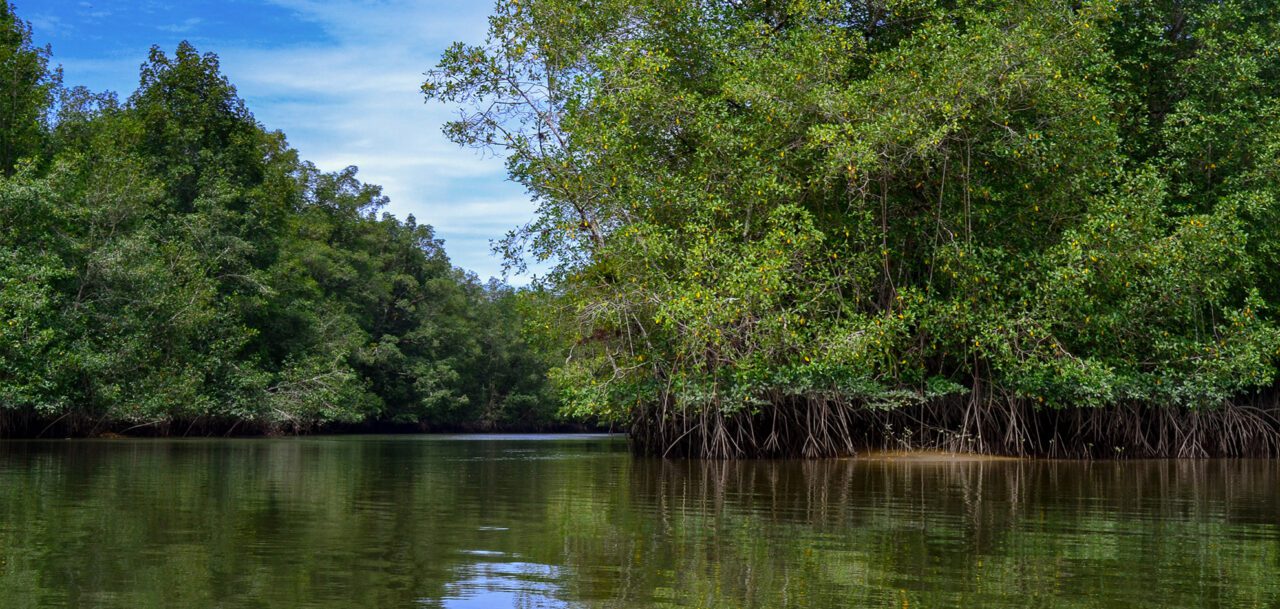Ballantyne Puin Castaño

Territorial Center for Conservation: a community-scientific led tourism effort based on bioeconomy
Project Site: Punta Soldado, Colombia
Sector: Academic
Disciplines: Environmental Engineering, Economy, Rural Development
Collaborators: CEMarin (Center of Excellence in Marine Sciences), Asociación Calidris, Consejo
Comunitario de Comunidades Negras de Punta Soldado, Asociación Comunitaria EcoManglar, Mi
Eslabón, Secretaría de Turismo de Buenaventura, Promotora de Oportunidades, Ojo de Pez, Carbono
Local+ UG
Ballantyne is an environmental engineer from the National University of Colombia, and is currently completing her MSc in Environment and Development at the same university. A researcher in the Oceánicos Research Group, she is part of the CEMarin’s Early Researcher’s Network and the Women’s Network for Climate Justice. Her research and projects focus on climate adaptation of coastal communities in the Colombian Pacific, climate justice, environmental education, the study of phenomena caused by climate variability and climate change, coastal hydrodynamics, governance and public policies.
In 2020 she began working with the Colombian-German Corporation CEMarin (Center of Excellence in Marine Sciences) in the communication of marine-coastal sciences, and in fundraising at the national and international level through strategic alliances between academia, NGOs, agencies, and the private sector.

She is currently leading the strategy of Territorial Centers in the Colombian Pacific with the aim to create laboratories to propose solutions to problems associated with climate change, promote sustainable development and articulate actors such as the public and private sector, communities, and academia to transcend in the transformation of territories in terms of local and scientific knowledge and innovation.
Ballantyne’s Coastal Solutions Program project will address one of the major challenges in conservation: securing the involvement and financial support of a diversity of actors to guarantee the long-term success of the initiative. Punta Soldado Island is a strategic place for the development of conservation in the Colombian Pacific, as it is a site of regional priority for the conservation of shorebirds and their habitats within the American Pacific Flyway.
Punta Soldado Island is also part of the Anchicayá National Forest Reserve. However, the economic needs of the communities living there have caused unsustainable changes in land use driven by conventional tourism and impacting shorebird habitat. This situation led to the creation of a new alternative known as ‘The Territorial Center for Conservation’: a community-scientific led tourism effort based on bioeconomy. This center seeks to transition from conventional tourism towards scientific and nature tourism, enhancing the conservation of shorebird habitat and economic support for the community.
The project focuses on strengthening local capacities to bring on the consolidation of a community enterprise and complementary financing strategies, as well as a monitoring plan for the protection and maintenance of shorebird habitats. In the long term, this project will help structure the territorial center as a link between different sectors such as the community, academia, business, and the public sector.
Ballantyne will be supported by her mentor Carlos Zarate, lawyer and agricultural economist, specialized in economics, international business, mining and environmental law. Carlos holds a master’s degree in procedural law, and he is currently a doctoral candidate in law with an emphasis on protected areas in the framework of the post-conflict in Colombia. He has more than 25 years of experience in the public and private sectors, working in management and advisory positions on environmental issues, land use planning, socio-environmental conflict resolution, mining policy, analysis of protected areas, and their impact on natural and social dimensions post-conflict. Currently, he is a professor at the Universidad Nacional de Colombia and directs the Polygesta Research Group, focusing on politics, legislation, and environmental management.
